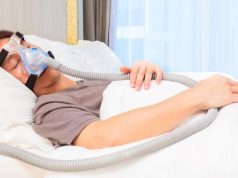2 kg/week weight gain appears safe for patients; low hypophosphatemia rates seen
MONDAY, Feb. 16, 2015 (HealthDay News) — Refeeding patients with anorexia nervosa to achieve more rapid weight gain can be safe and effective in a hospital-based protocol, according to a study published online Jan. 27 in the International Journal of Eating Disorders.
Graham W. Redgrave, M.D., from Johns Hopkins University in Baltimore, and colleagues evaluated weight restoration and refeeding complication outcomes for consecutive patients (females and males, adolescents and adults; 361 patients, 461 admissions) at least 1.8 kg below target weight with anorexia nervosa. Patients had been admitted to an integrated inpatient-partial hospital eating disorder program.
The researchers found that mild-to-moderate hypophosphatemia was present in 7.9 percent of cases at admission and in 18.5 percent at some point during treatment. Hypophosphatemia was predicted by lower admission body mass index (BMI), but not rate of weight gain (odds ratio, 0.65; P < 0.00001). There were no deaths reported, but five patients (1.1 percent) were transferred to medicine or surgery for reasons unrelated to refeeding. Mean inpatient weight gain was 1.98 kg/week, while mean partial hospital weight gain was 1.36 kg/week. At program discharge, 71.8 percent of adults reached a BMI of 19, and 80.4 percent of adolescents came within 2 kg of their target weight.
“Refeeding patients with anorexia nervosa using a hospital-based, behavioral protocol may be accomplished safely and more rapidly than generally recognized, weight restoring most patients by discharge,” the authors write. “Helpful elements may include the program’s integrated, step-down structure; multidisciplinary team approach emphasizing group therapy to effect behavior change; and close medical monitoring for those with BMI <15.”
Copyright © 2015 HealthDay. All rights reserved.








